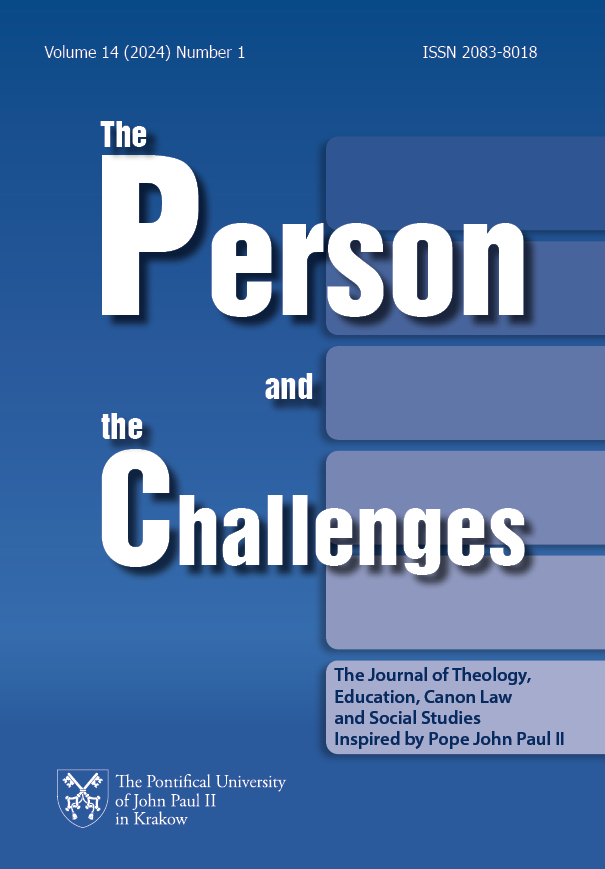A Duty to Remain Connected: a Biblical Perspective of the Wisdom of the Shabbàt.
DOI:
https://doi.org/10.15633/pch.14110Keywords:
Shabbàt, work, rest, common home, creationAbstract
Our labour is intricately woven into our identity, extending beyond mere livelihood. It ought to facilitate personal growth, define our societal roles, and contribute to a common good within the confines of social and environmental sustainability. However, the contemporary work landscape is undergoing profound and global changes, disrupting traditional and conventional notions of work dynamics and its associated relationships. Amidst the diverse and country-specific alterations, a universal paradigm shift is reshaping nearly every sector of the economy. The pressing question emerges: How can we prevent the shift toward more flexible employment from translating into a life of perpetual instability? As job structures become more malleable and the boundaries between professional and personal life blur, the risks of self-exploitation and work-induced stress loom. In navigating these transformations, we must discern the evolving paradigms of work and consider their social and economic repercussions. What lessons are we being prompted to internalize as the European work landscape undergoes unprecedented changes? It becomes imperative to explore these shifts and their implications for a sustainable and equitable future. Exploring the existential insights of the Shabbàt and extracting valuable lessons from biblical wisdom prompts us to ponder the significance of rest in fostering healthy relationships and connectivity—with ourselves, others, our work, and our shared environment. The prevalent culture of constant availability and the obligation to stay connected could benefit from a biblical perspective, particularly in grasping the essence of Shabbàts wisdom.
References
Burer M.H., Jesus, Sabbath Actions, and Divine Sabbath Work, in: Divine Sabbath Work, Pennsylvania 2012, Pennsylvania State University Press, pp. 103–135.
Byrne B., Romans, Sacra Pagina Series 6, Collegeville, MN, 1995, Michael Glazier – Liturgical Press.
Dohmen Ch., Stenmans P., Weinfeld M., כָּבֵד [kābḕd] – כָּבוׄד [kābôd], in: G.J. Botterweck, H. Ringgren, H.J. Fabry (eds.), Theological Dictionary of the Old Testament, vol. 7, Grand Rapids, MI 1995, Eerdmans, pp. 13–38.
Droge A.J., Sabbath Work/Sabbath Rest: Genesis, Thomas, John, “History of Religions” 47 (2007) 2/3, pp. 112–141.
Dunn J.D.G., Ethics in Practice, in: The Theology of Paul the Apostle, London – New York, 1998, T&T Clark, pp. 670–712.
Garrad L., A Paradigm Shift in Work Culture: Are We Ready for the Consequences of Remote Work?. In: https://www.linkedin.com/pulse/re-thinking-employee-experience-remote-workers-part-1-lewis-garrad (23 January 2024).
Gundry R.H., Matthew. A Commentary on His Handbook for a Mixed Church under Persecution, second edition, Grand Rapids, MI, 1994, Eerdmans.
Heschel A.J, The Sabbath: Its Meaning for Modern Man, New York 1951, Farrar, Straus, Giroux.
Kittel G., δοκέω [dokéō] et al, in: G. Kittel (ed.), G.W. Bromiley (trans.), Theological Dictionary of the New Testament, vol. 2, Grand Rapids, MI 1964, Eerdmans, pp. 232–255.
Lamberty-Zielinski H., “נְשָׁמָה [neshāmāh],” in: G.J. Botterweck, H. Ringgren, H.J. Fabry (eds.), Theological Dictionary of the Old Testament, vol. 10, Grand Rapids, MI, 1999, Eerdmans, pp. 65–70.
MacDonald M.Y., Colossians and Ephesians, Sacra Pagina Series 17, Collegeville, MN, 2000, Michael Glazier – Liturgical Press.
Martin T.W., Sabbath, in: R.L. Brawley (ed.), The Oxford Encyclopedia of the Bible and Ethics, vol. 2, Oxford 2014, Oxford University Press, pp. 233–237.
Matera F.J., Galatians, Sacra Pagina Series 9, Collegeville, MN, 1992. Michael Glazier – Liturgical Press.
Neusner J. (ed.), Sabbath, in: Dictionary of Judaism in the Biblical Period (450 B.C.E. to 600 C.E., Peabody, MA 1996, Hendrickson, pp. 538–539.
Westerholm S., Craig A. Evans, Sabbath, in: C.A. Evans, S.E. Porter (eds.), Dictionary of New Testament Background, Downers Grove, IL, 2000, InterVarsity, pp. 1031–1035.
Downloads
Published
Issue
Section
License
Copyright (c) 2024 Paul Sciberras

This work is licensed under a Creative Commons Attribution 4.0 International License.
Authors who publish with this journal agree to the following terms:
- Authors retain the copyright and full publishing rights without restrictions, and grant the journal right of first publication with the work simultaneously licensed under a Creative Commons Attribution 4.0 International License that allows others to share the work with an acknowledgement of the work's authorship and initial publication in this journal.
- Authors are able to enter into separate, additional contractual arrangements for the non-exclusive distribution of the journal's published version of the work (e.g., post it to an institutional repository or publish it in a book), with an acknowledgement of its initial publication in this journal.
- Authors are permitted and encouraged to post their work online (e.g., in institutional repositories or on their website) prior to and during the submission process, as it can lead to productive exchanges, as well as earlier and greater citation of published work (See The Effect of Open Access).

